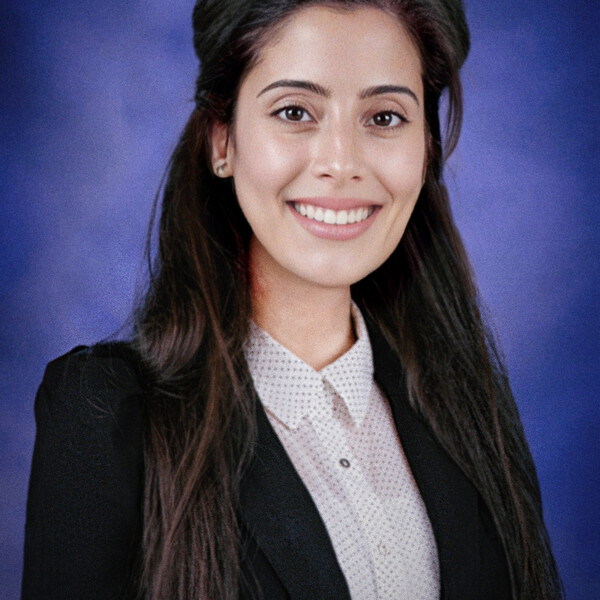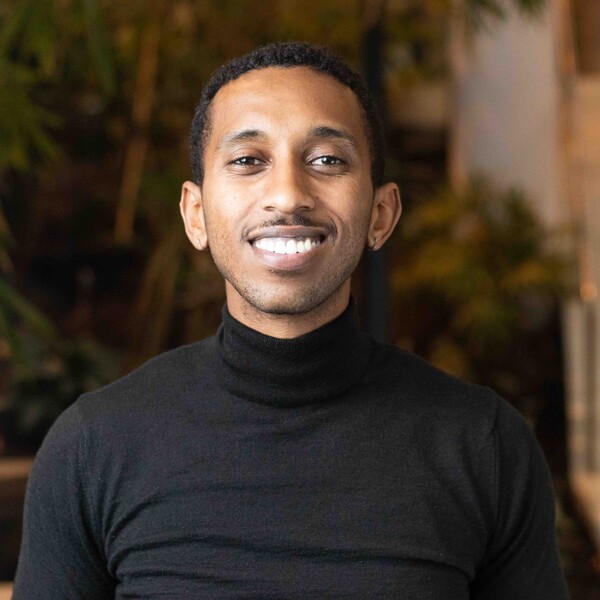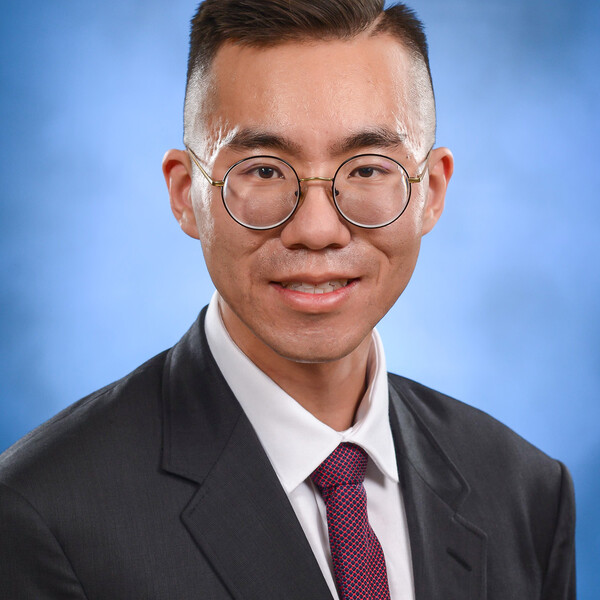Breadcrumbs
- Home
- Research
- Clinician Scientist Program
- Clinician Scientist Profiles - General Stream
Clinician Scientist Profiles: General Stream

BENDEL, Ryma
Dr. Ryma Bendel is a senior psychiatry resident at the University of Toronto and a current trainee in the Clinician-Scientist Program, based at the Toronto General Hospital. Her primary academic and clinical focus lies in Consultation-Liaison (CL) Psychiatry.
Her research activities span several key subdomains within CL Psychiatry, including transplant psychiatry, psycho-oncology, neuropsychiatry, and cardiac psychiatry. She has published in highly regarded peer-reviewed journals, presented her work at prominent national and international academic conferences, and secured competitive funding to support her research.
Most notably, Dr. Bendel was recently awarded the prestigious Labatt Family Network Award, a $40,000 research grant supporting her investigation into the neurobiology of depression across the lifespan. This project bridges psychiatry and neuroscience by examining brain-based biomarkers of depression.
Dr. Bendel is committed to advancing integrated, evidence-based models of psychiatric care within the hospital setting. Her long-term career goals include contributing to academic teaching, clinical leadership, and research within CL Psychiatry.

BULLE, Semir
Dr. Semir Bulle is currently a Psychiatry resident at the University of Toronto and is the former Co-President of the Black Medical Students’ Association. Born and raised in the Toronto area, he has spent the majority of his professional career working towards the improvement of the material conditions of others through advocacy & research. He is the official liaison for the Canadian Doctors for Protection Against Guns, and he has strong ties to the zero-gun violence movement. Additionally, he is the co-founder of Doctors for Defunding Police, and Doctors for Long-term Care (LTC) Justice and his research work is currently focused on the intersections of mental health crises, policing and resource allocation. His work has been featured in the Toronto Star, CBC and other news organizations in the city of Toronto and throughout Canada.

CHIOREAN, Andreea
Dr. Andreea Chiorean is a Psychiatry resident at the University of Toronto and a trainee in the Clinician-Scientist Program. She is currently working under the supervision of Dr. Tyler Kaster and Dr. Ishrat Husain at the Temerty Centre for Therapeutic Brain Intervention. Her research is focused on the biological and pharmacologic underpinnings of psychiatric illness and therapeutic treatments. Supported by the PSIF Resident Research Grant, she will be leading an epidemiological investigation of the pharmacological treatment of patients with bipolar disorder by leveraging large health administrative datasets and advanced statistical methods.

HUI, Jeanette
Dr. Jeanette Hui completed her BSc in Neuroscience at McGill University and MSc in Medical Sciences at the University of Toronto. Her graduate training, supported by the CAMH Discovery Fund Talent Development Award, investigated the neurophysiological pathways involved in depression and schizophrenia using transcranial magnetic stimulation and electroencephalography. Currently a senior psychiatry resident at the University of Toronto, her research focuses on the use of interventional psychiatry techniques to treat medication-refractory psychiatric disorders. Her current CSP project involves the exploration of neurobiological and physiological mechanisms underlying ketamine’s anti-suicidal effects in bipolar depression.
Supervisor: Dr. Daniel Blumberger

NONA, Christina
Dr. Christina Nona completed her PhD in the Department of Pharmacology and Toxicology at the University of Toronto where she investigated the neuroplastic adaptations in the brain’s reward circuitry associated with chronic alcohol exposure. Using rodent models, this work explored the neuromodulatory mechanisms underlying addictive and relapse-like behavior, contributing to the foundational understanding of individual differences in alcohol-induced synaptic changes and propensity towards addiction.
Building on her PhD training, Dr. Nona completed a Postdoctoral Fellowship at the Centre for Addiction and Mental Health that shifted towards clinical application, specifically integrating neurobiological insights from pre-clinical research into the design and execution of high-quality, clinical studies addressing gaps in the treatment of alcohol use disorder.
Currently, her research interests include identifying biomarkers of treatment response to repetitive transcranial magnetic stimulation (rTMS) in individuals with treatment-resistant depression.
Christina Nona on PubMed:

MOHAMMAD, Ibrahim
Dr. Ibrahim Mohammad is a third-year psychiatry resident at the University of Toronto. Prior to residency, he obtained his BSc in Kinesiology from McMaster University and his MD from the University of Ottawa. His experience in community organizing, particularly within the Justice for Soli movement, highlighted the challenges faced by those at the intersection of mental illness, the justice system, and racialization. This led him to develop an early interest in forensic and transcultural psychiatry, particularly within Muslim mental health.
His research experience is reflective of his interests. Under the supervision of Dr. Floyd Wood at the University of Ottawa, he published a study on the integration of correctional psychiatry within medical education. Additionally, for the past three years, he has been a research mentee at Stanford University’s Muslim Mental Health and Islamic Psychology lab, where he examined the experiences of formerly incarcerated Muslims under the guidance of Dr. Rania Awaad. He has also co-authored a forthcoming book chapter on the mental health of incarcerated Muslims in North America.
As part of the Clinician Scientist Program, he will be working with CAMH’s Dr. Sandy Simpson and Dr. Roland Jones on a project investigating the rate and risk factors for suicide within Ontario’s provincial prisons, supported by a grant from the Physicians’ Services Incorporated (PSI) Foundation. This project aims to inform policy and structural changes to address the elevated risk of suicide in correctional settings. Outside of his clinical and research interests, Ibrahim enjoys baking (being particularly fond of baklava) and nature photography.

RIVERA, Laura
I am a PGY3 Psychiatry Resident at the University of Toronto. I completed graduate training at the University of Toronto (MPH in Epidemiology, 2013) and medical training at the University of Calgary (MD, 2021). Prior to medical school, I was a Research Associate at Public Health Ontario and at the University of Calgary in the Faculties of Medicine and Social Work. As an epidemiologist who is now a clinician, my interest is in the intersection of mental health care and data science, as well as knowledge translation and application of epidemiological research to psychiatric practice. I am additionally interested in equity promotion and aim to consider the impacts of the social determinants of health (SDOH), particularly gender and race, in my research. Within the Clinician Scientist Program, I will work with George Foussias, Martin Rotenberg, and Marta Maslej at the Centre for Addiction and Mental Health to apply machine learning methods to healthcare administrative data to determine clinical and functional outcome trajectories for individuals diagnosed with schizophrenia, and to clarify the role of the SDOH in shaping these outcomes.

WONG, Stanley
Dr. Stanley Wong completed his BSc in biology at McMaster University. He then completed his MD at the University of Ottawa where he published in multiple peer-reviewed journals under the supervision and mentorship of Dr. Jess G. Fiedorowicz and Dr. Marco Solmi in medical education research and meta-analysis. Currently a psychiatry resident at the University of Toronto, Stanley's research interests are in exploring novel pharmacological and psychosocial interventions for the treatment of mental disorders including psychedelics research, pharmacological interventions for sleep disorders, and mindfulness based interventions. He is a member of the Mood Disorders Innovations and Treatment Lab under the supervision and mentorship of Dr. Ishrat Husain at CAMH. By exploring the safety and efficacy of novel interventions, Stanley hopes to improve the mental health and quality of life of the patients he serves. Outside of his professional life, Stanley enjoys weightlifting, cooking, and hosting D&D sessions with his friends.
Dr. Stanley Wong on Google Scholar
